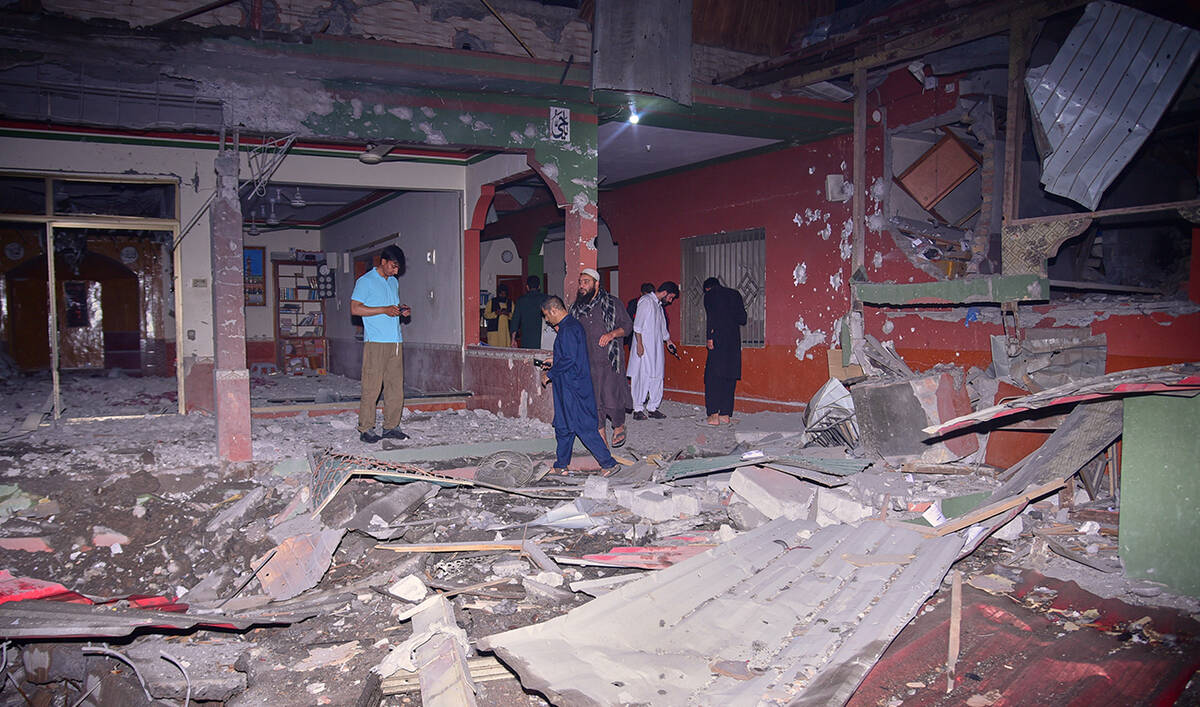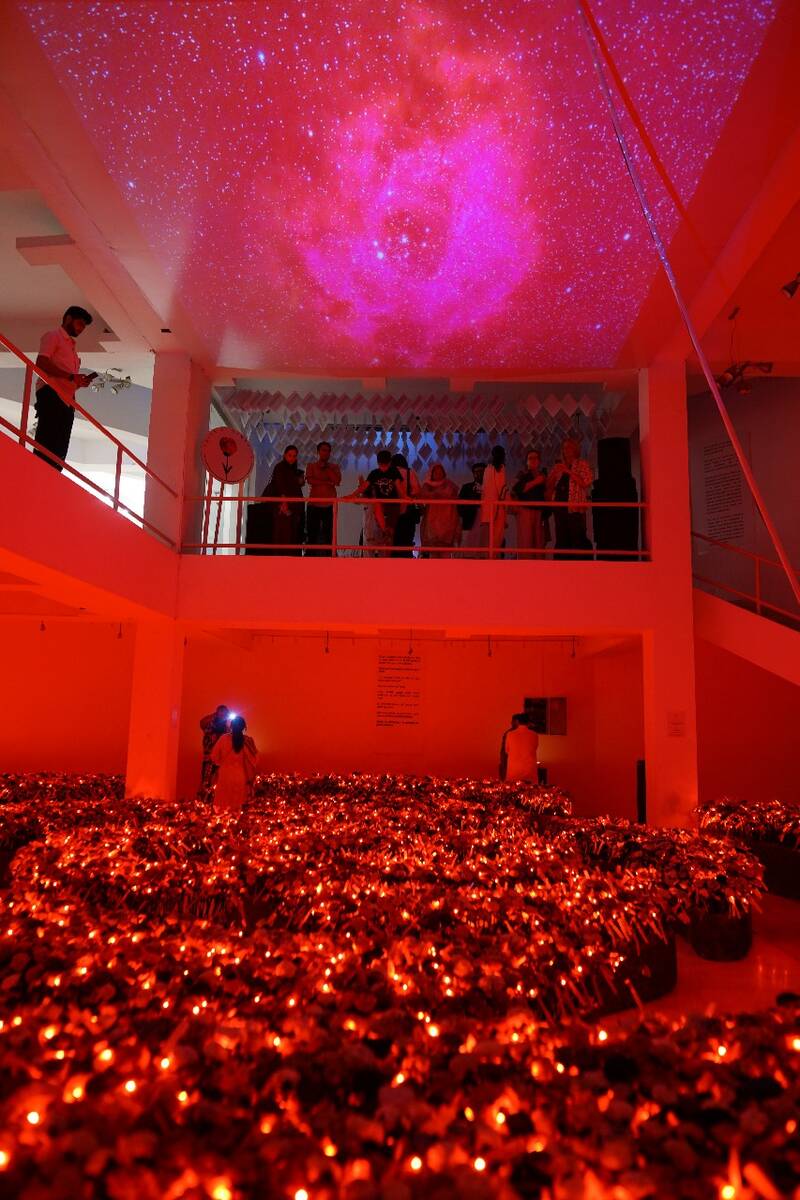ISLAMABAD: Pakistani Foreign Secretary Amna Baloch met Chief Adviser of Bangladesh Muhammad Yunus on Thursday to discuss trade, investment, youth linkages and regional integration, following the first Foreign Office Consultations (FOC) between the two nations in 15 years.
The two countries, which were once one, have shared a tumultuous history, with Bangladesh gaining independence from Pakistan in 1971 after a bloody war of independence.
The latest meetings in Dhaka come amid significant political shifts in Bangladesh following the ouster of Prime Minister Sheikh Hasina Wajid in a popular student uprising last year. Hasina’s government was hostile toward Pakistan but closely allied with India, where she remains exiled. While her removal from office was followed by the cooling of relations between Dhaka and New Delhi, exchanges with Islamabad have started to grow.
“During the Foreign Secretary’s call on the Chief Adviser, Yunus, inter alia, trade and investment opportunities, youth linkages, regional integration, and revival of SAARC [South Asian Association for Regional Cooperation] remained the focus of discussion,” Pakistan’s foreign office said in a statement.

Pakistan Foreign Secretary Amna Baloch speaks during a meeting with Bangladesh’s Chief Adviser Muhammad Yunus in Dhaka on April 17, 2025. (Photo courtesy: Handout/MOFA)
A separate statement from Yunus’ office said he “put the emphasis on strengthening ties with Pakistan to boost mutual cooperation and explore trade and business potentials.”
“There are certain hurdles. We have to find ways to overcome those and move forward,” the chief adviser told Baloch who was in Dhaka for the 6th round of Foreign Secretary Level Consultations (FSLC).
A 7th round will take place in Islamabad in 2026. The consultations are expected to pave the way for a visit by Pakistan’s Deputy Prime Minister and Foreign Minister Ishaq Dar to Bangladesh at the end of the month, the first such visit by a Pakistani foreign minister since 2012.
The chief adviser said that Bangladesh and Pakistan should exchange more youth and cultural programs to increase people-to-people bonding.
“We kept missing each other for a long time as our relationship was frozen. We have to overcome the barriers,” he said.
“WE CAN’T MISS THE BUS EVERY TIME”
The statement from Bangladesh quoted Pakistani Foreign Secretary Baloch as saying ways must be found to “harness the potentials between the two countries.”
“We have huge intra-regional markets on our own rights. We should use it,” Baloch said. ” “We can’t miss the bus every time.”
She said that there was a need for regular B2B (business to business) interactions between the private sectors of the two countries and the exchange of visits at all levels.
“Both sides had a constructive and forward-looking engagement in a cordial environment where entire spectrum of Pakistan -Bangladesh bilateral relations came under discussion, including political, economic and trade relations, cooperation in agriculture, environment and education, cultural exchanges, defense relations and people to people contacts,” the Pakistani foreign office added.
“The focus of talks on economic cooperation and people to people relations is a realistic and pragmatic agenda for the revival of ties,” Former Pakistani diplomat Ali Sarwar Naqvi, an executive director of the Center for International Strategic Studies in Islamabad, told Arab News, commenting on the latest interactions in Dhaka.

Pakistan Foreign Secretary Amna Baloch shakes hands with her Bangladeshi counterpart, MD. Jashim Uddin, in Dhaka on April 17, 2025. (Photo courtesy: Handout/MOFA)
In regional terms, Naqvi said growing ties between Islamabad and Dhaka were a “setback” to India’s hegemonic ambitions in South Asia.
Former Foreign Secretary Aizaz Ahmad Chaudhry said the people of Pakistan and Bangladesh were bound by history, faith and culture, and it was encouraging to see their bilateral ties on an “upward trajectory.”
“It was unfortunate that during Sheikh Haseena’s time, all these relations and relations were cut off, but now that the change has come, the situation has improved,” he told Arab News, saying any differences in the future should be resolved through “diplomacy and dialogue.”
“The cooperation between Pakistan and Bangladesh is not aimed against any third country, and India should see it as a natural interaction between two sovereign nations,” he added.
Another former ambassador, Masood Khalid, said Pakistan and Bangladesh were once one country and it was “illogical and unnatural” for them not to have diplomatic contact for decades.
“Both countries deciding to explore cooperation in multiple fields and restore their historical bonding finds resonance among the people of two countries,” he told Arab News.
“I am confident that this headway in bilateral ties will be of mutual benefit and conducive to regional peace and stability.”






















